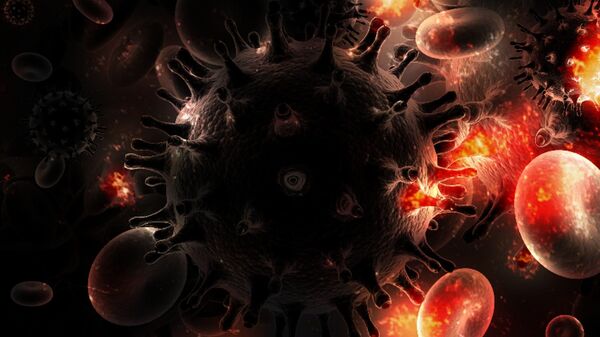Scientists at the Russian Academy of Science have discovered a way to dissolve a carbon nanomaterial known as fullerene in water, turning it into a substance capable of eradicating HIV molecules in a human body, according to an article published by the Organic & Biomolecular Chemistry journal.
"We produced a water-soluble fullerene derivative bearing five residues of 3-hydroxypropanoic acid that displayed high inhibitory activity towards the human immunodeficiency virus. The results open new possibilities for creating new fullerene-based anti-viral medication," Pavel Troshin, a scientist at the Russian Academy of Sciences’ Institute of Problems of Chemical Physics, told RIA Novosti.
According to the researchers, the effectiveness of the new substance is comparable to that of tenofovir disoproxil – a medication used to prevent and treat HIV — and does not cause any negative side effects.
Furthermore, scientists believe that other types of soluble fullerenes can be used to neutralize other dangerous viruses, like hepatitis.


